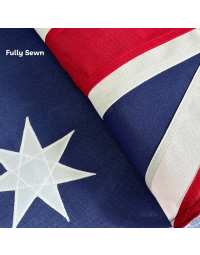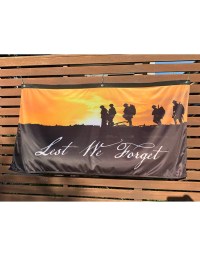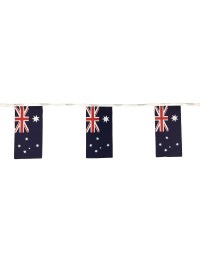The ‘Ode of Remembrance’ and Significant Wartime Poetry

A significant part of Anzac Day and Remembrance Day is the reciting of wartime poems. Poetry was used by many soldiers to record their personal experiences on the battlefields, to pay tribute to those fallen and to help others understand the significance of the time.
Over the years, some such poetry has been adapted and used to commemorate and reflect on solemn occasions such as Remembrance Day and Anzac Day. For example, the Ode of Remembrance, recited at commemorative ceremonies since 1921, is the fourth stanza of the poem ‘For the Fallen’, written by Laurence Binyon in 1914. Binyon was an English academic and poet who worked as a medical orderly on the Western Front during World War I, where he drew his inspiration for the poem.
Read below some important and noteworthy wartime poetry.
For the Fallen
Laurence Binyon, 1914
With proud thanksgiving, a mother for her children,
England mourns for her dead across the sea.
Flesh of her flesh they were, spirit of her spirit,
Fallen in the cause of the free.
Solemn the drums thrill; Death august and royal
Sings sorrow up into immortal spheres,
There is music in the midst of desolation,
And a glory that shines upon our tears.
They went with songs to the battle, they were young,
Straight of limb, true of eye, steady and aglow.
They were staunch to the end against odds uncounted;
They fell with their faces to the foe.
They shall grow not old, as we that are left grow old;
Age shall not weary them, nor the years condemn.
At the going down of the sun and in the morning
We will remember them.
They mingle not with their laughing comrades again;
They sit no more at familiar tables of home;
They have no lot in our labour of the day-time;
They sleep beyond England's foam.
But where our desires are and our hopes profound,
Felt as a well-spring that is hidden from sight,
To the innermost heart of their own land they are known
As the stars are known to the night;
As the stars that shall be bright when we are dust,
Moving in marches upon the heavenly plain;
As the stars that are starry in the time of our darkness,
To the end, to the end, they remain.
In Flanders Fields
John McCrae, 1915
In Flanders fields the poppies blow
Between the crosses, row on row,
That mark our place; and in the sky
The larks, still bravely singing, fly
Scarce heard amid the guns below.
We are the Dead. Short days ago
We lived, felt dawn, saw sunset glow,
Loved and were loved, and now we lie,
In Flanders fields.
Take up our quarrel with the foe:
To you from failing hands we throw
The torch; be yours to hold it high.
If ye break faith with us who die
We shall not sleep, though poppies grow
In Flanders fields.
We Shall Keep the Faith
Moina Michael, 1918
Oh! you who sleep in Flanders Fields,
Sleep sweet - to rise anew!
We caught the torch you threw
And holding high, we keep the Faith
With All who died.
We cherish, too, the poppy red
That grows on fields where valor led;
It seems to signal to the skies
That blood of heroes never dies,
But lends a lustre to the red
Of the flower that blooms above the dead
In Flanders Fields.
And now the Torch and Poppy Red
We wear in honor of our dead.
Fear not that ye have died for naught;
We'll teach the lesson that ye wrought
In Flanders Fields.
The Farmer Remembers the Somme
Vance Palmer, 1920
Will they never fade and pass?
The mud, and the misty figures endlessly coming
In file through the foul morass,
And the grey flood-water lipping the reeds and grass,
And the steel wings drumming!
The hills are bright in the sun:
There’s nothing changed or marred in the well-known places:
When work for the day is done
There’s talk, and quiet laughter, and gleams of fun
On the old folks’ faces.
I have returned to these:
The farm, and the kindly Bush, and the young calves lowing;
But all that my mind sees
Is a quaking bog in a mist—stark, snapped trees,
And the dark Somme flowing.





